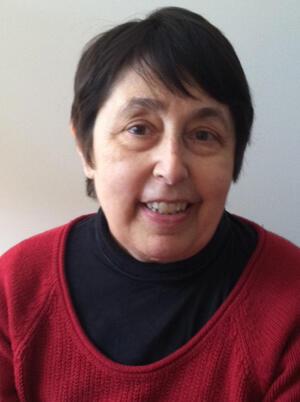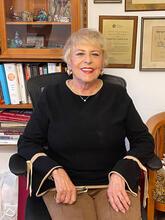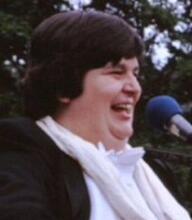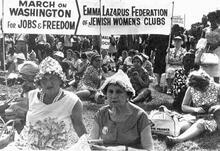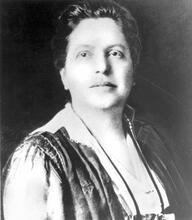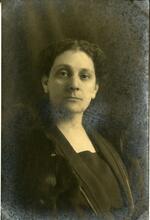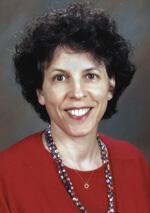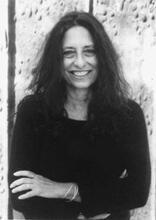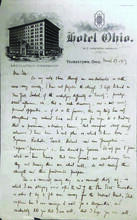Judith Herman
Forty years before the #MeToo movement, psychiatrist Dr. Judith Herman exposed the harmful consequences of child sexual abuse of girls within the family. While she was doing her residency, her patients began to reveal personal histories of sexual abuse; while she worked in a women’s free clinic during her fellowship in community psychiatry, patients continued to reveal histories of incest to her. This work resulted in the publication of Herman’s award-winning book, Father-Daughter Incest, in 1981. Herman went on to pioneer treatment of victims of abuse and psychotherapeutic confrontations of abusers. She also did influential work on how oppression and trauma take similar psychological paths in those who survive war, political persecution, and violence against women and children within the family.
Forty years before American women in the #MeToo movement began unmasking their male sexual abusers, psychiatrist Judith Lewis Herman and some of her colleagues explored and exposed the harmful consequences of the sexual abuse of female children and teens within the family. Herman also pioneered individual and group psychotherapy modalities for the victims of sexual abuse through the Victims of Violence Program at Cambridge Health Alliance, now celebrating over thirty years of providing clinical care to survivors of interpersonal violence.
Family and Education
Born in 1942 in New York City, Judith Lewis was the oldest of two children. Both her parents were the American-born children of Eastern European Jewish immigrants. Her father, Naphtali Lewis (1911-2015), was a Professor of Classics at the City University of New York. He was noted for writing several social histories of Ptolemaic and Roman history that made scholarly research accessible to the non-specialist. Her mother, Helen Block Lewis (1913-1987), was a psychologist and psychoanalyst who taught at Yale University and was active in progressive political causes. Both her parents were atheists. There were occasionally some A seven-day festival to commemorate the Exodus from Egypt (eight days outside Israel) beginning on the 15th day of the Hebrew month of Nissan. Also called the "Festival of Mazzot"; the "Festival of Spring"; Pesah.Passover celebrations with extended family, but not every year. Besides Yiddish expressions, ethnic food, a strong awareness of persecution, and support for social justice movements, the other thing that cemented Jewish identity was “lots of Jewish jokes.”
Herman attended Radcliffe College and Harvard Medical School. As a college and graduate student, she participated in marches for civil rights and against the war in Vietnam. Her first marriage, in 1963, was to a Harvard classmate, Peter Herman.
Influence of Feminism and Work on Sexual Abuse
In 1970, at the beginning of her psychiatric residency, Herman joined the burgeoning feminist movement as it was evolving in Cambridge, Massachusetts, and around the United States. She joined a consciousness-raising group, which was part of a local, loosely organized, larger group named Bread and Roses. At the same time, while she was doing her residency, women patients began to reveal personal histories of sexual abuse. Her first two patients admitted to the hospital after suicide attempts disclosed histories of father-daughter incest.
After completing her psychiatric residency, Herman received a fellowship in community psychiatry that allowed her to work in a women’s free clinic, one of the many counter-institutions, like rape crisis centers and battered women’s shelters, that activists in the women’s movement created during the 1970s. In this endeavor, she was part of a group called The Women’s Mental Health Collective, whose aim was to give high-quality counseling from a feminist perspective to underserved populations. Here Herman worked with still more patients who revealed histories of sexual abuse.
Herman has always preferred to work in collaboration. In reviewing work with patients with her colleague, psychologist Lisa Hirschman, the two women observed that a significant number of adult women were reporting that they had been sexually abused as children, usually by a male within the immediate family. They began to inquire among other clinicians and quickly collected twenty cases. At the time, a major psychiatry textbook estimated the prevalence of incest as one case per million. Herman and Hirschman published a paper on their findings in 1976 in the relatively new women’s studies journal Signs. In the year before the paper was published, it was copied and passed from hand to hand. The two women began to receive letters from women all over the country saying, “I thought I was the only one,” or “I thought no one would believe me,” or “I thought it was all my fault.” In this way, they learned how widespread sexual abuse and violence was within the family (Herman 2017, 96).
Herman later reflected, “As clinicians we were also privileged to witness the liberation that comes when the burdens of shame and fear are lifted. As our patients told their stories and were met with compassion rather than scorn, their despair gave way to renewed hope and their isolation to a renewed sense of community. My work for the next forty years has been built on these initial discoveries” (Herman 2017, 196).
Innovative Work in Psychological Trauma
Herman joined the Department of Psychiatry at Cambridge Hospital, one of the teaching hospitals of Harvard Medical School. Here, in 1984, she met the psychologist Mary Harvey, who had recently arrived from the National Institute of Mental Health in Washington D.C., where she had conducted a nationwide study of exemplary rape crisis centers. The psychiatry department at Cambridge Hospital was relatively new and interested in innovation. The two women were encouraged to develop an exemplary program for psychological trauma. Thus, the Victims of Violence Program was born. The program staff also provides training for young mental health professionals, conducts research to advance the trauma field, and participates in anti-violence organizing.
During this same period at Cambridge City Hospital, Herman met the psychiatrist Bessel van der Kolk, who had been working with combat veterans. The diagnosis of post-traumatic stress disorder had gained official recognition in the diagnostic manual of the American Psychiatric Association, largely thanks to public testimony and the organizing and lobbying efforts of Vietnam War veterans. Van der Kolk was interested in how post-traumatic stress might appear in different populations. A study group of clinicians was formed and for three or four years, Herman, Van der Kolk, and several colleagues met one evening a month in people’s homes. The study group was a fertile gathering place. As Herman listened to reports from many different walks of life, it became increasingly clear that just as oppression is oppression, trauma is trauma, whether in the political sphere of war or dictatorship or in the private sphere of sex, intimacy, and family life. This fundamental insight inspired Trauma and Recovery.
Since the publication of that book, Herman has lectured widely on the subject of sexual and domestic violence. She is the recipient of numerous awards, including the 1996 Lifetime Achievement Award from the International Society for Traumatic Stress Studies and the 2000 Woman in Science Aware from the American Medical Women’s Association. In 2007 she was named a Distinguished Life Fellow of the American Psychiatric Association.
In 1978 Herman married the photo-journalist Jerry Berndt (1943-2013). They had one daughter. Her marriage in 2005 to Allen Graubard ended with his death in 2012.
Herman’s third and final book, Truth and Repair, was published in April 2023. It was reviewed and praised in both the New York Times and the New Yorker magazine. For this work, Herman drew on interviews she conducted with survivors. She lays out a theory of justice that centers on a collective, social acknowledgement of what survivors have suffered and cites estimates that less than less than five per cent of rapes result in a guilty plea or a criminal conviction. When survivors turn to the police, the process may victimize them again. Herman does not profess to have answers to the problems she identifies; she writes, "Think of this book as a beginner's attempt to reimagine justice, based on the testimony of survivors." And further, in the latest afterword to her 1992 work Trauma and Recovery, Herman writes, "Healing from the impact of human cruelty requires a relational context of human devotion and kindness. No new technique or drug is likely to change these fundamental principles."
Herman lives in a supportive retirement community in Cambridge, Massachusetts. She is still actively engaged in her profession and maintains her faculty appointment at Harvard Medical School and participates in training programs for psychology post-doctoral fellows and psychiatry residents at Cambridge Health Alliance
Selected Works by Judith Herman
Truth and Repair: How Trauma Survivors Envision Justice. New York: Basic Books, 2023.
“Trauma and recovery: A legacy of political persecution and activism across three generations.” In The Wounds of History: Repair and Resilience in the Trans-Generational Transmission of Trauma, edited by S. Grand, S. and J. Salberg. New York: Routledge, 2017.
Trauma and Recovery. New York: Basic Books, 1992. Second Edition, 1997. Third Edition, 2015. Foreign Language editions: Chinese, Japanese, Korean, Hebrew, Turkish, Greek, Italian, Spanish, Danish, Swedish, Dutch, German, Hungarian, Slovak, Lithuanian, Croatian, Serbian, Bosnian, and Ukranian.
Father-Daughter Incest. Cambridge, MA: Harvard University Press, 1981. Second Edition 2000; Foreign language editions: Japanese, Korean.

